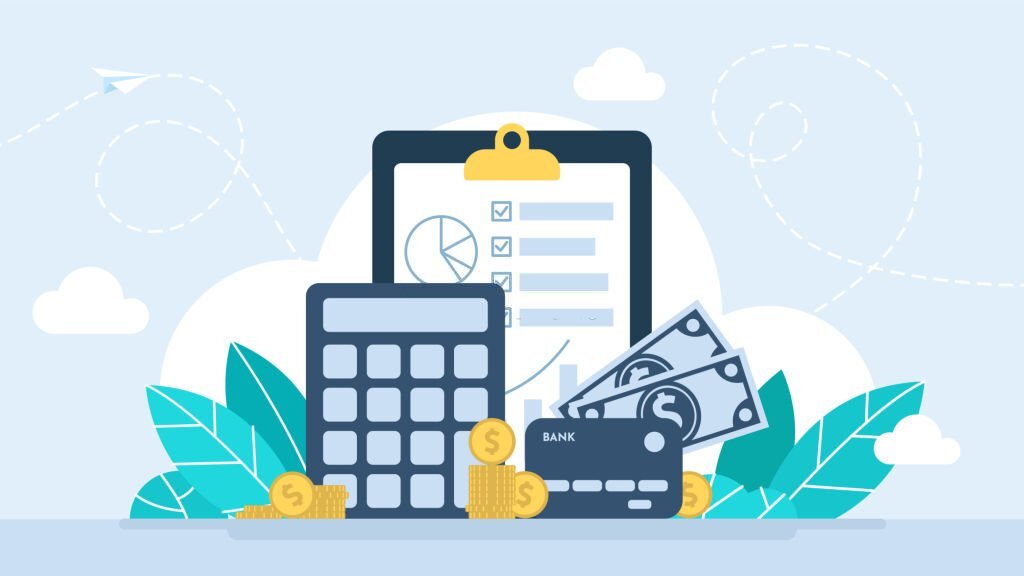5 Ways to Save Money and Reach Your Financial Goals Faster
Managing your finances is a vital aspect of achieving your life goals. Saving money is a fundamental step towards attaining financial independence, stability, and security. Unfortunately, saving money is often easier said than done. In today’s world, there are many temptations to spend money on non-essential items, making it difficult to stay on track. However, there are effective ways to save money and reach your financial goals faster. In this article, we will explore five strategies that can help you save money and achieve your financial objectives.
Introduction
Saving money requires a lot of discipline and commitment. It is not always easy to forgo instant gratification for the sake of long-term financial stability. However, the benefits of saving money are immense. When you save money, you can achieve your financial goals faster, build an emergency fund, reduce your debt, and improve your credit score. With the right strategies, saving money can become a habit that will benefit you in the long run.

Understand your expenses
The first step towards saving money is to understand your expenses. You need to know how much you are spending and what you are spending it on. This information will help you identify areas where you can cut back on expenses. Start by tracking your expenses for a month. Write down everything you spend money on, including bills, groceries, entertainment, and other non-essential expenses. Once you have a clear picture of your expenses, you can start identifying areas where you can reduce your spending.
Set clear financial goals
It is essential to have clear financial goals to help you stay focused and motivated. Your financial goals should be specific, measurable, achievable, relevant, and time-bound. For example, if you want to save for a down payment on a house, you should set a specific amount and a deadline for achieving your goal. Having a clear goal will help you prioritize your spending and make it easier to save money.
Create a budget plan
A budget plan is a vital tool for managing your finances. It helps you allocate your income to different expenses and ensures that you have enough money for your priorities. When creating a budget plan, start by listing all your sources of income. Then, list all your expenses, starting with the most important ones. Make sure to include all your fixed expenses, such as rent, utilities, and loan payments. Once you have listed all your expenses, subtract your total expenses from your total income to determine how much you have left for savings.

Find ways to reduce expenses
Reducing your expenses is one of the most effective ways to save money. There are many ways to reduce your expenses, such as cutting back on unnecessary expenses, negotiating bills, and finding ways to save on groceries. You can also look for cheaper alternatives to your current expenses, such as switching to a cheaper phone plan or using coupons to save on groceries. The key is to identify areas where you can cut back on expenses without sacrificing your quality of life.
Automate your savings
Automating your savings is a great way to make saving money a habit. You can set up automatic transfers from your checking account to your savings account. This way, you won’t have to think about saving money; it will happen automatically. You can also automate your bill payments to avoid late fees and save money on interest charges.
Conclusion
Saving money is a crucial aspect of achieving your financial goals. With the right strategies, saving money can become a habit that will benefit you in the long run. By understanding your expenses, setting clear
financial goals, creating a budget plan, finding ways to reduce expenses, and automating your savings, you can save money and reach your financial objectives faster. It takes discipline and commitment, but the benefits are worth it.
Remember, saving money is not about depriving yourself of the things you love. It’s about making smart financial decisions and prioritizing your long-term financial stability. With the right mindset and strategies, you can save money and achieve your financial goals.

FAQs
- How much should I save each month?
The amount you should save each month depends on your income, expenses, and financial goals. Ideally, you should aim to save at least 20% of your income each month. However, if that is not feasible, start with a smaller percentage and gradually increase it over time.
- What are some easy ways to reduce expenses?
There are many ways to reduce expenses, such as cutting back on non-essential expenses, negotiating bills, finding ways to save on groceries, and switching to a cheaper phone plan. Look for areas where you can cut back on expenses without sacrificing your quality of life.
- How can I stay motivated to save money?
One way to stay motivated is to set clear financial goals and track your progress. Celebrate your milestones and reward yourself for achieving your goals. Another way to stay motivated is to find an accountability partner or join a savings challenge.
- Should I pay off debt or save money first?
It depends on your financial situation. If you have high-interest debt, such as credit card debt, it’s usually best to prioritize paying it off first. However, if your debt has a low-interest rate, you can focus on saving money and paying off debt at the same time.
- How can I automate my savings?
You can automate your savings by setting up automatic transfers from your checking account to your savings account. You can also set up automatic bill payments to avoid late fees and save money on interest charges. Talk to your bank or financial institution to set up these features.








